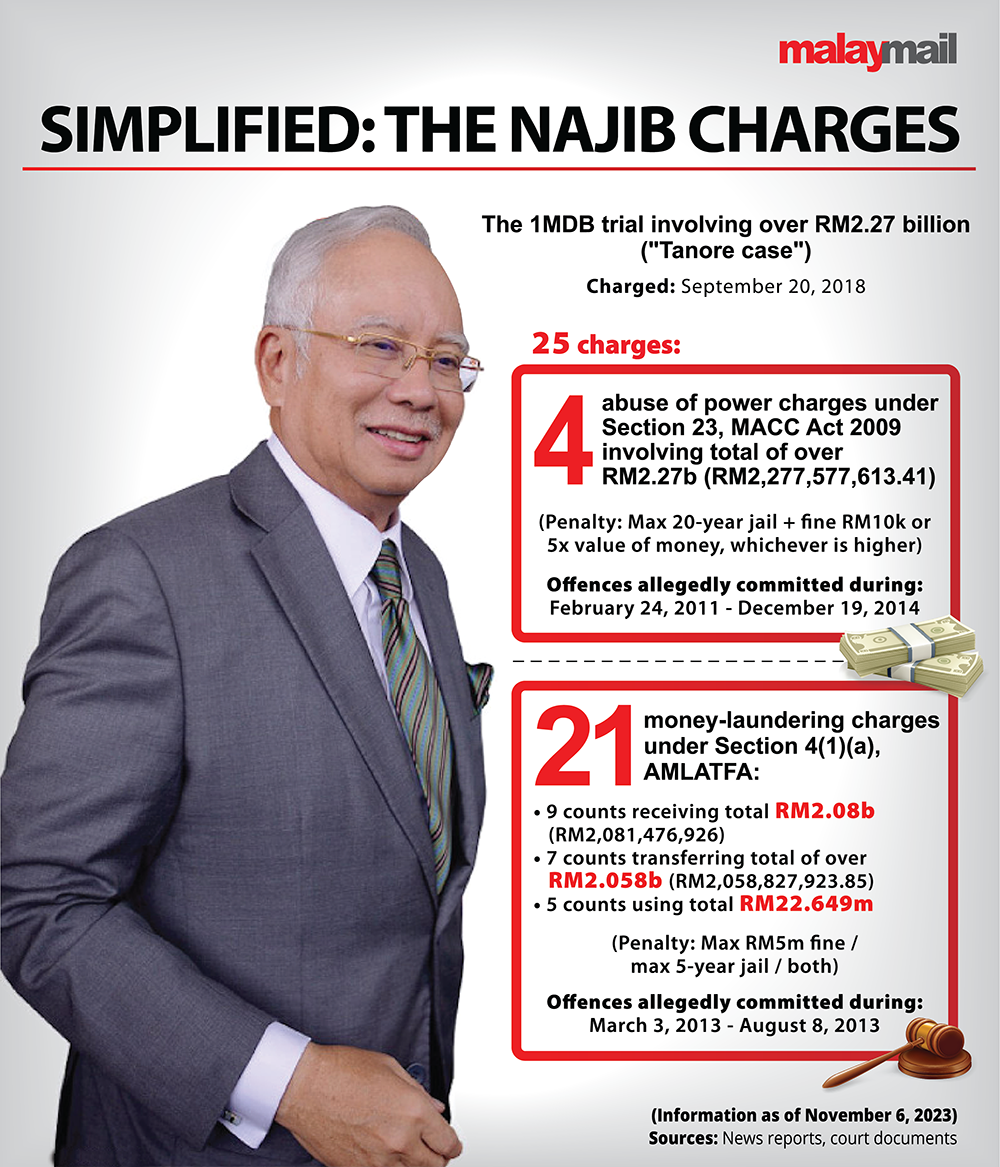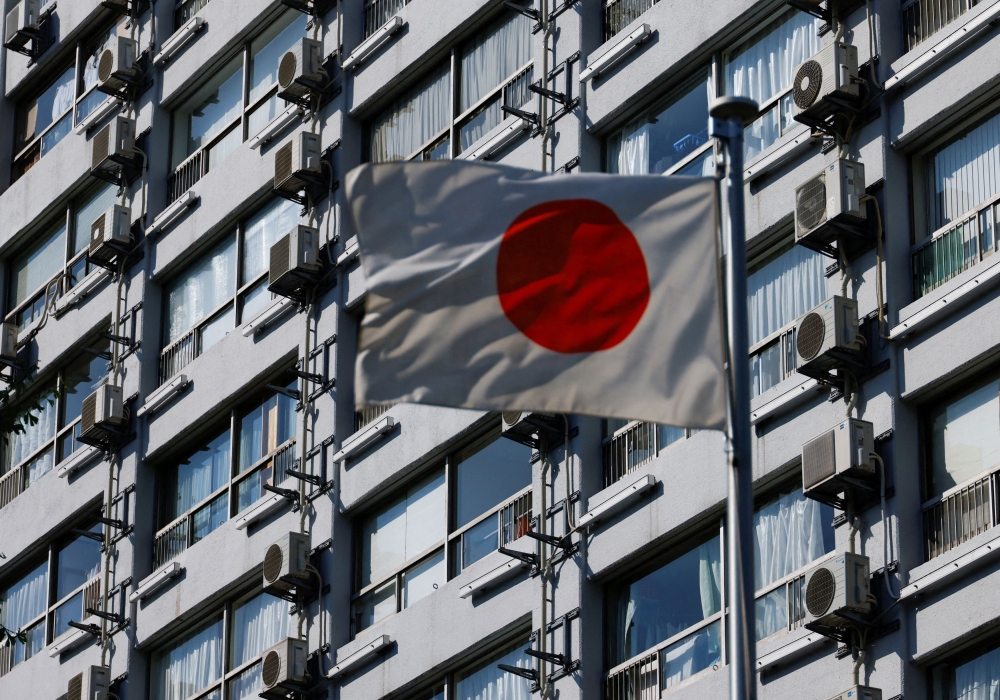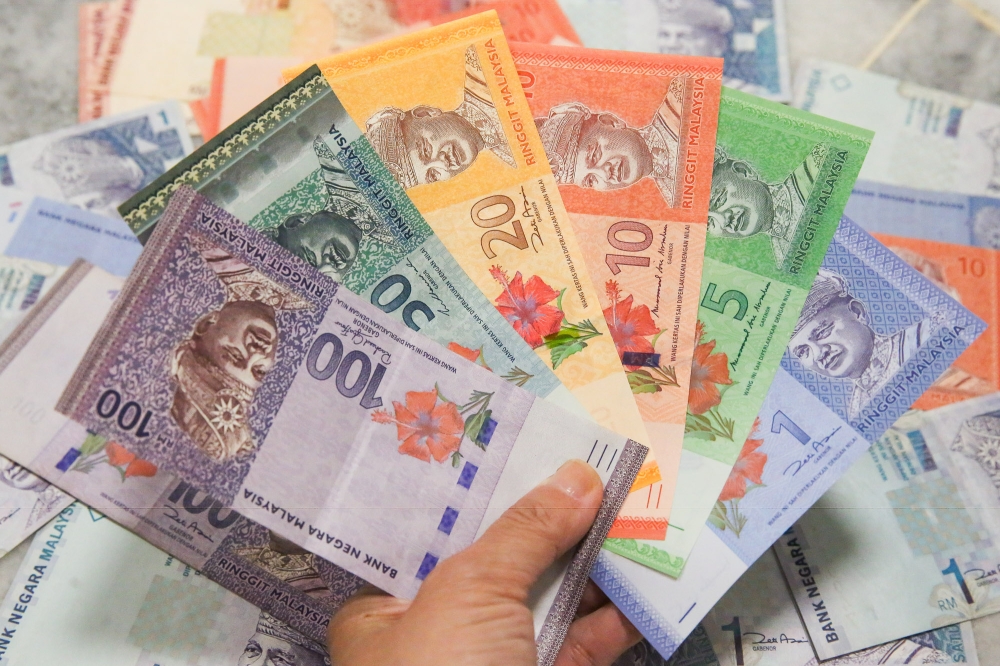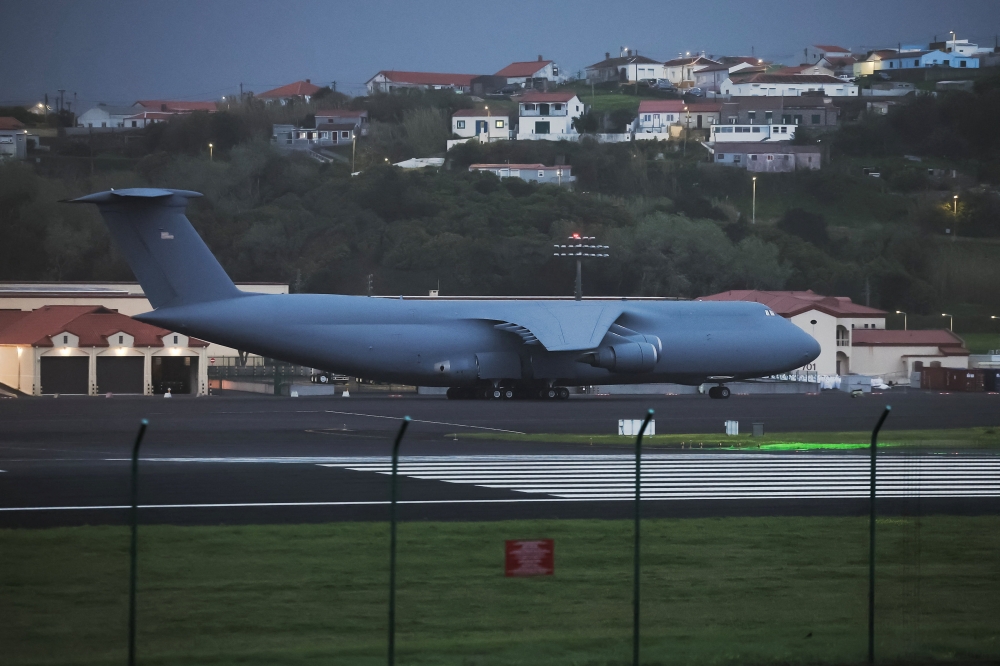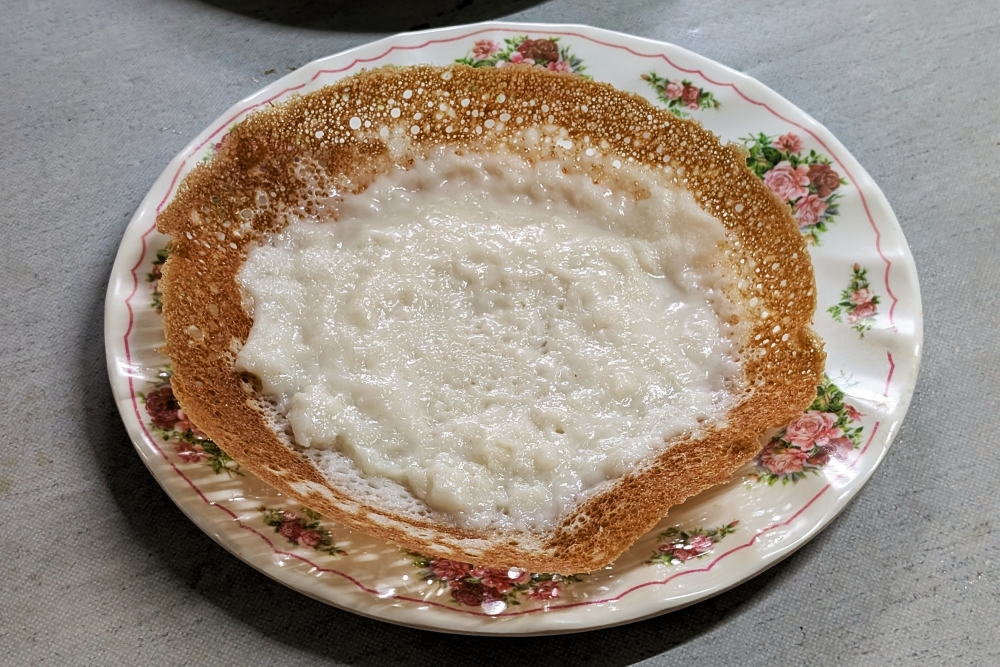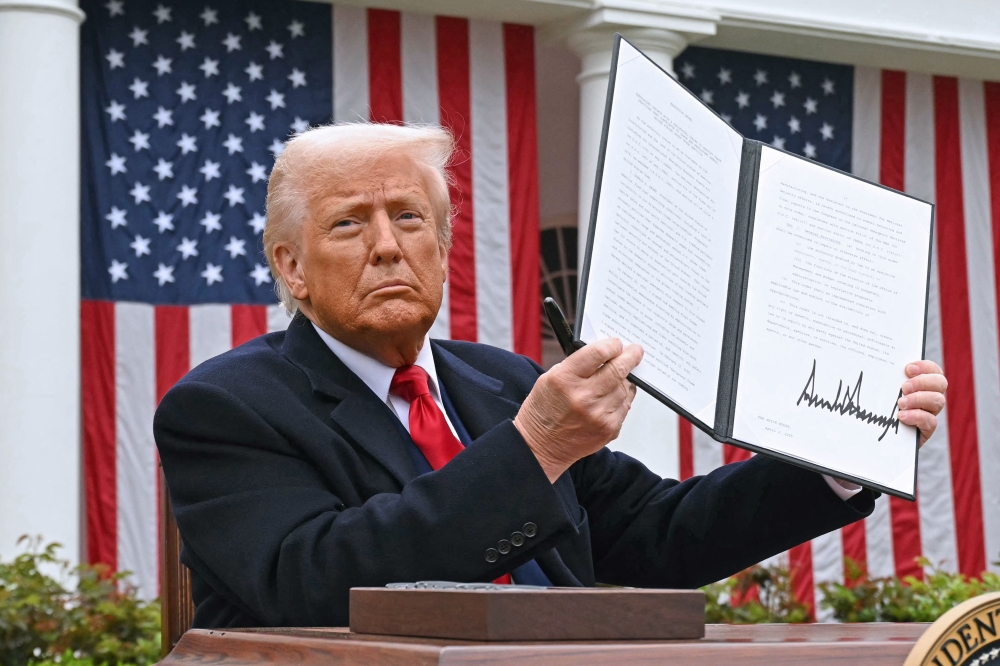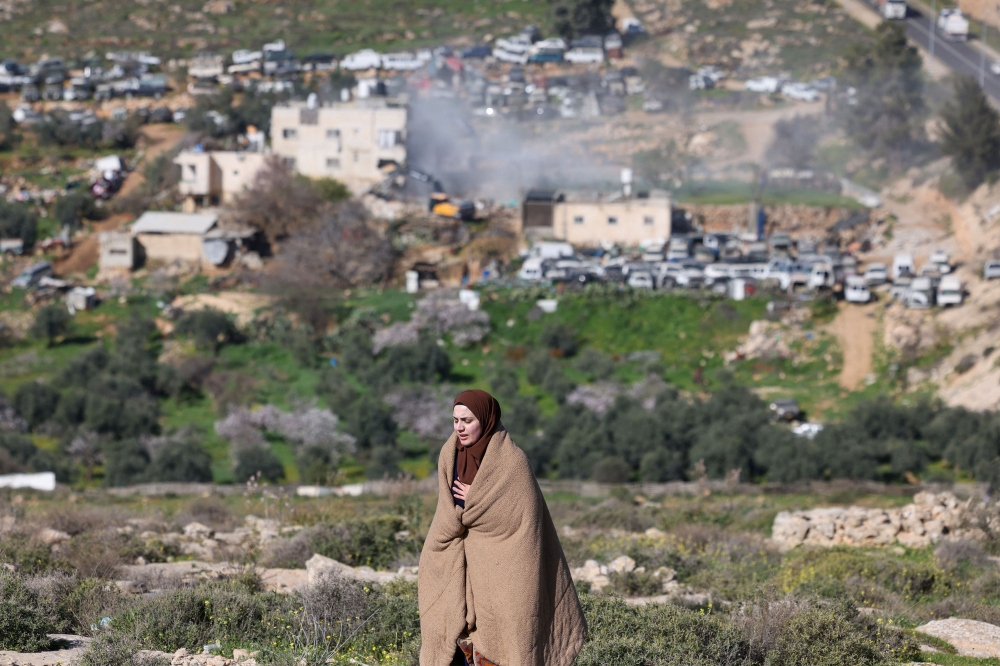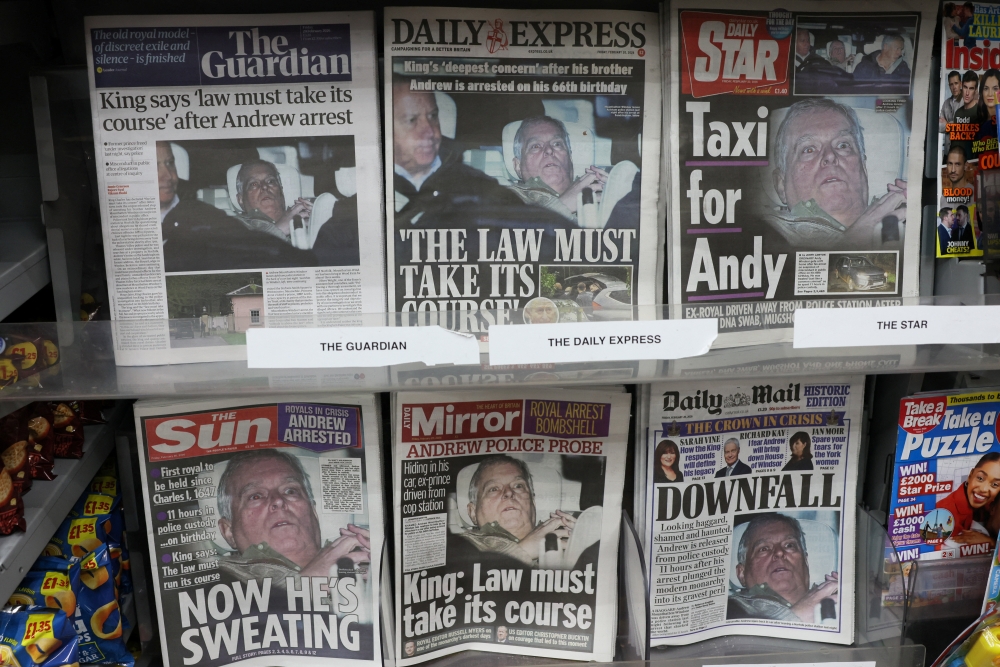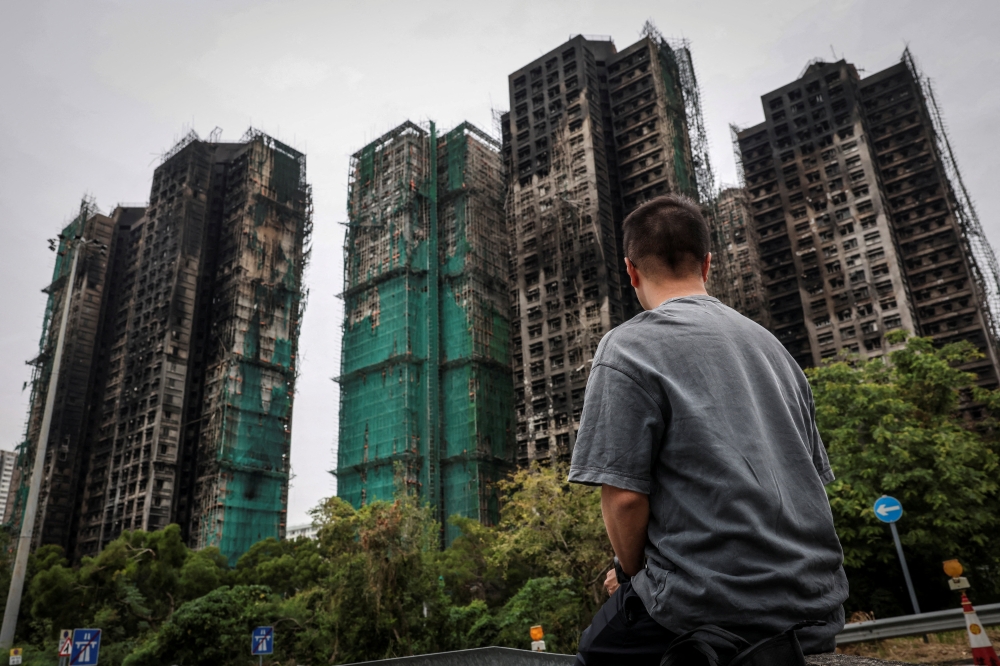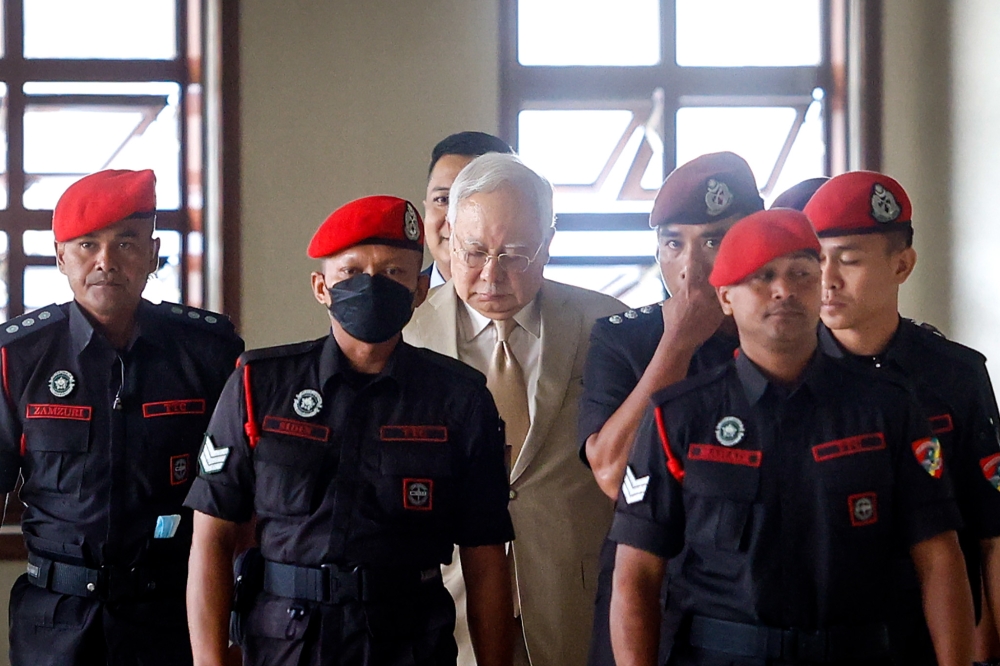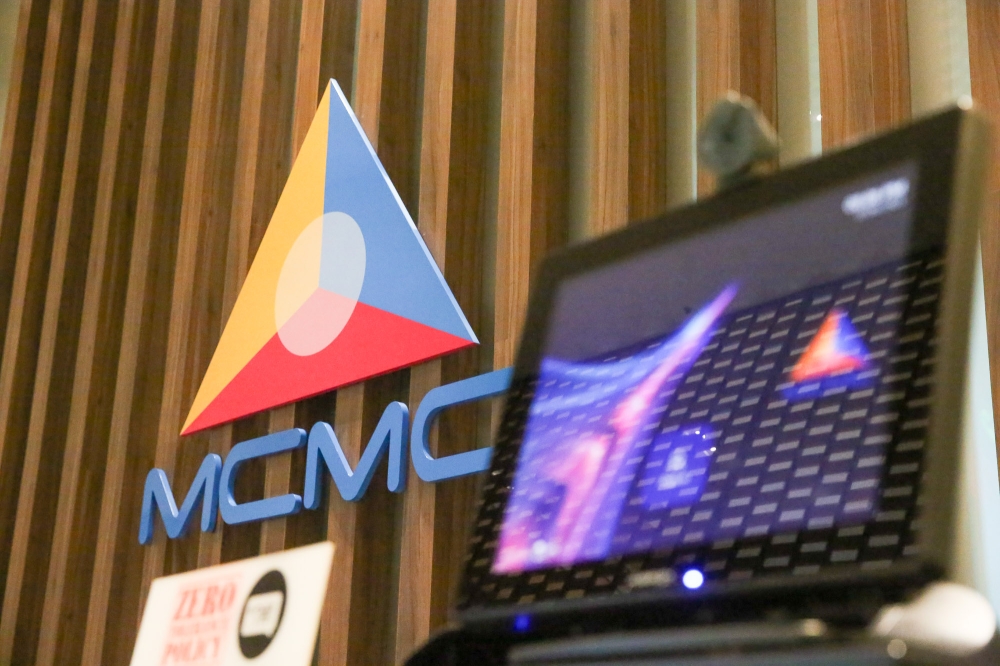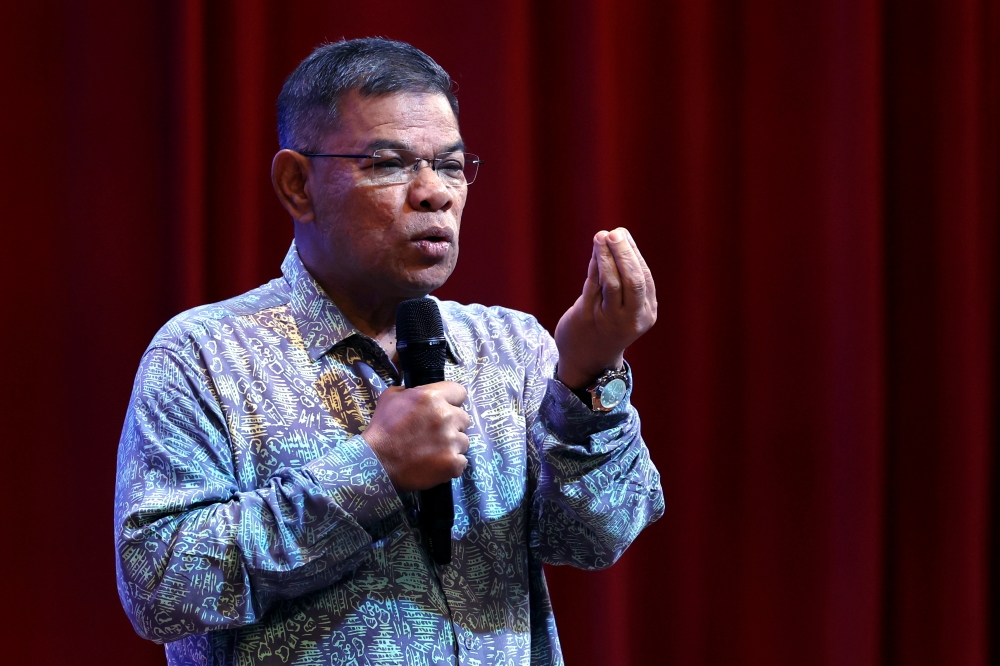KUALA LUMPUR, April 16 — Malaysian investigators visited Saudi Arabia in 2015 to verify four donation letters linked to a purported Saudi prince amid a probe into RM2.6 billion found in then prime minister Datuk Seri Najib Razak’s bank accounts, but were not shown the original documents despite meeting the royal’s representative, the High Court heard today.
Malaysian Anti-Corruption Commission (MACC) officer Datuk Mohd Hafaz Nazar, who was part of a five-man team from the agency and the Attorney General’s Chambers (AGC) on the trip, said this while testifying as the 20th defence witness in Najib’s 1Malaysia Development Berhad (1MDB) trial.
“I think MACC at that point in time desperately wanted to sight the original four letters of donation that became the subject matter of investigation of MACC.
“As far as I could recall, we have not sighted the original documents while there,” Hafaz, now senior director of the Malaysian Anti-Corruption Academy, told the High Court today.
In this trial, the prosecution has said over RM2 billion of 1MDB funds entered Najib’s private AmIslamic bank accounts, but the former prime minister has claimed that these were donations from Saudi Arabia’s royalty and had cited the four donation letters to support his claim.
Only photocopies of the four donation letters have been shown to the court during the 1MDB trial, and Najib previously claimed he had kept the original copies at his office at the Prime Minister’s Department and that he could not access them after losing the 13th general election in 2018.
During the Saudi trip, MACC recorded statements on 29 November 2015 from the purported Saudi royal Prince Saud Abdulaziz Majid Al Saud’s representative, Mohamad Abdullah Al-Koman, and also Eric Tan Kim Loong, who is now known to be Low Taek Jho’s associate.
Hafaz said today, however, that both Mohamad Abdullah’s and Tan’s statements to the MACC were actually converted from pre-prepared statutory declarations (SDs).
Hafaz said both individuals did not show any documents to the MACC and did not answer further questions.
Asked by Najib’s lawyer Wan Azwan Aiman Wan Fakhruddin why Mohamad Abdullah gave the statement on behalf of Prince Saud, Hafaz said the MACC was informed that the Saudi prince allegedly had immunity and that investigators had to record the statement through his intermediary or agent, Mohamad Abdullah.
Having only seen Prince Saud once during an introductory session before the statement was recorded, Hafaz said this arrangement “came to me as a surprise” as he had never recorded statements of witnesses through their representative.
“With no production of complementary documents, and not much opportunities for questions to be asked, generally I’m not happy,” Hafaz said regarding the statement taken from the alleged Saudi prince through his representative, adding that he had discussed this and shared his concerns with other MACC officers during the Saudi trip.
Both SDs prepared in advance
Three MACC officers were involved during the recording of the two statements, namely Hafaz, who was the deputy director of the MACC’s financial analysis division then; Fikri Ab Rahim, who was the head of the MACC’s anti-money laundering division then; and the RM2.6 billion case’s investigating officer, Mohd Nasharudin Amir.
After the trio’s discussion on what to do when Mohamad Abdullah produced a statutory declaration and with no other documents given to the MACC, Hafaz said Fikri had insisted on the recording of a statement.
Hafaz said he then suggested the statutory declaration be converted into a statement using the MACC’s format, and that the two other officers had asked him to take down the statement.
“If not mistaken, we asked Mohamad Abdullah whether he has a soft copy, he assured he has, but I couldn’t recall whether it was a thumb drive or floppy disk, so there was no independent typing of this document,” he said, adding that it was merely a “transferring” of the information from the statutory declaration into the MACC format.
Hafaz said he believed that the statutory declaration was “pre-prepared” and meant for the MACC, saying: “If it wasn’t because of MACC’s insistence on statement recording, probably that’s the only document that MACC will bring home.”
While Mohamad Abdullah’s statement to the MACC stated his confirmation of the alleged Saudi prince’s four donation letters to Najib and transactions made to Najib’s account, Hafaz later said there was no verification based on documents regarding the four letters.
Hafaz confirmed Mohamad Abdullah’s statement — on behalf of Prince Saud — also stated that Tan was a nominee for then Saudi ruler King Abdullah and other Saudi royal family members.
As for the MACC’s recording of Tan’s statement, Hafaz confirmed that a signed statutory declaration was also already prepared in advance and shown to the MACC.
But Tan said he had no additional documents to support his statutory declaration and his statement to the MACC, Hafaz said.
Tan confirmed to the MACC a list of 30 transactions he had made to Najib on the direction of his principal, but MACC investigators were not given any documents by Tan to check and cross-refer these transactions, Hafaz said.
Hafaz said he did not know if the MACC brought back those two statutory declarations shown during the recording of statements from Mohamad Abdullah and Tan.
When asked by deputy public prosecutor Ahmad Akram Gharib, Hafaz confirmed that there was no question and answer session during the MACC’s recording of statements from the two individuals, as everything was pre-prepared in the statutory declarations and then converted to the MACC’s format for statements.
Akram suggested that there was actually no recording of statements by the MACC and that there was merely a “cut and paste” from the soft copy of the statutory declarations into the MACC’s format.
Hafaz agreed as the key element of question and answer sessions did not happen: “Because when asked to Abdullah al-Koman and Tan Kim Loong, both of them said what they wanted to share with the MACC is only limited to the contents of the SDs only.”
He added that the MACC officers were not prohibited from asking further questions to the two, but said both of them stuck to only the SDs.
Among other things, Hafaz said he believed the MACC did ask for a copy of Prince Saud’s passport but it was not given, and also noted that there would usually be a copy of a passport or identity card attached to statements recorded by the MACC.
As for why both statements recorded by the MACC stated the location to be King Abdullah’s palace in Saudi Arabia, Hafaz confirmed that he had written the venue as the “Palace of King Abdullah” as that was what was told to him and he did not verify if it was actually a palace.
Najib’s 1MDB trial before trial judge Datuk Collin Lawrence Sequerah resumes tomorrow.
